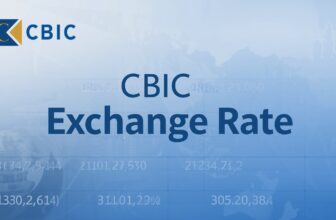
Enter the realm of optimal trading conditions with a ‘good spread’ in Forex. This guide demystifies the ideal spread range, its impact on trading costs, and how it influences profitability for traders navigating the currency markets.
A good spread in forex is generally considered to be narrow, meaning a small difference between the bid and ask prices. A good spread ranges from zero to five pips. This allows traders to enter and exit positions at a lower cost.
Key Takeaways:
- Narrow spreads in forex are desirable for lower trading costs
- Low spread forex brokers offer competitive spreads for more cost-effective trading
- Choosing brokers with tight spreads and good liquidity is important
- Maximizing profits and minimizing expenses are achievable through optimal spreads
- Traders should focus on finding the best spreads in forex to trade smarter
What is a Good Spread in Forex?
A good spread, typically ranging from zero to five pips, plays a pivotal role in benefiting both the broker and the trader.
Low spread forex brokers are preferred by traders as they offer competitive spreads, enabling more cost-effective trading. Finding the best spreads in forex trading is crucial for maximizing profits and minimizing expenses. Traders should look for brokers that offer tight spreads and good liquidity to ensure optimal trading conditions.
In forex trading, comprehending the dynamics of bid and ask prices is fundamental. The bid price signifies the amount a broker is willing to pay for the base currency, exemplified by the broker purchasing USD in exchange for CAD. Conversely, the ask price represents the broker’s selling price for the base currency in exchange for the counter currency. The bid-ask spread, calculated as the difference between these two prices, plays a pivotal role in the transaction.
Types of Spreads: Fixed vs. Variable
Fixed Spreads: Stability and Predictability
Fixed spreads offer a stable and predictable trading environment, ideal for those with smaller accounts. Brokers employing a “dealing desk” model maintain consistent spreads, irrespective of market volatility. This stability, however, comes with potential downsides. During rapid market changes, brokers may encounter challenges in adjusting spreads, resulting in requotes and slippage. Traders with limited capital appreciate fixed spreads for their predictability and lower transaction costs, as they remain constant regardless of market fluctuations.
Variable Spreads: Adapting to Market Dynamics
Variable spreads, operating under a “non-dealing desk” model, provide flexibility that mirrors market conditions. Brokers source pricing from multiple liquidity providers, adjusting spreads based on supply, demand, and overall market volatility. While variable spreads eliminate requotes, traders may experience slippage during fast market movements. This type of spread is better suited for experienced traders with larger accounts, as the dynamic nature accommodates frequent trading during peak market hours.
Choosing the Right Spread: Factors to Consider
Selecting the appropriate spread type is a critical decision that can significantly impact a trader’s overall success in the forex market. It requires careful consideration of various factors to align with individual trading preferences and risk tolerance.
Account Size and Trading Frequency
One of the primary factors influencing the choice between fixed and variable spreads is the trader’s account size. Traders with smaller accounts often find fixed spreads more appealing. Fixed spreads have smaller capital requirements, making them a cost-effective option for those with limited funds. On the other hand, traders with larger accounts may opt for variable spreads, especially if they engage in frequent trading during peak market hours.
Consider a scenario where a trader with a smaller account aims for stability and cost predictability. Fixed spreads provide a consistent trading environment, allowing them to manage their finances more efficiently. Conversely, a trader with a larger account who frequently executes trades may benefit from the adaptability of variable spreads, which can offer better pricing during periods of high market activity.
Market Conditions and Volatility
The prevailing market conditions and volatility play a pivotal role in choosing the right spread. Fixed spreads remain constant regardless of market fluctuations, providing stability during both calm and turbulent market periods. This stability can be advantageous for traders who prefer a more predictable trading experience. However, during times of heightened volatility, fixed spreads may lead to requotes and slippage, potentially impacting the execution of trades.
Variable spreads, on the other hand, adjust dynamically based on market conditions. They tend to widen during economic data releases or when overall market liquidity decreases, such as during holidays. Traders who can navigate and capitalize on market volatility may find variable spreads more suitable for their trading style.
Risk Tolerance and Trade Execution Speed
Understanding one’s risk tolerance is crucial when choosing a spread type. Fixed spreads offer a level of certainty, allowing traders to know the exact cost of a trade before execution. However, during fast market movements, fixed spreads may result in requotes, delaying trade execution. Traders with a lower risk tolerance and those who prioritize precise trade execution may lean towards fixed spreads.
Conversely, variable spreads eliminate the possibility of requotes but may lead to slippage during rapid market changes. Traders with a higher risk tolerance and a focus on quick trade execution may find variable spreads more aligned with their trading goals.
The decision between fixed and variable spreads is not one-size-fits-all. Traders must carefully assess their account size, trading frequency, risk tolerance, and market conditions to make an informed choice. It’s essential to recognise that what works for one trader may not be suitable for another. By tailoring the choice of spread type to individual needs, traders can enhance their overall trading experience and increase the likelihood of success in the dynamic forex market.
Calculating Transaction Costs
Understanding how spreads correlate with transaction costs is pivotal for traders aiming to manage their finances effectively. The calculation involves two critical elements: the value per pip and the number of lots traded. For instance, if trading mini lots (10,000 units) with a value per pip of $1, a spread of 1.4 pips would result in a transaction cost of $1.40. This linear relationship implies that increasing position size amplifies transaction costs reflected in the spread. Traders must grasp this formula to gauge the financial implications of their trades accurately.
Whether opting for the stability of fixed spreads or embracing the adaptability of variable spreads, the choice significantly impacts trading outcomes. By understanding transaction costs, traders gain a comprehensive view of the financial implications associated with their chosen spread type. In conclusion, successful forex trading involves a strategic approach to spread selection, considering individual needs and market conditions. Blueberry Markets provides tailored solutions, offering both raw spreads and tight spreads with built-in costs through our Direct and Standard accounts, respectively.
Factors Affecting Forex Spreads
Understanding the factors that affect forex spreads is crucial for successful trading. Several key elements can influence the bid-ask spread, including liquidity, volatility, and economic or geopolitical events.
Liquidity
Liquidity plays a significant role in determining the spread of a currency pair. It refers to the ease with which a particular currency can be bought or sold in the market without causing substantial price changes. Currency pairs with high liquidity generally have tighter spreads, making it easier for traders to enter or exit positions without incurring significant costs.
Volatility
Volatility in the forex market can cause spreads to widen. Volatility refers to the degree of price fluctuations in a currency pair. When prices are rapidly changing and unpredictable, spreads tend to expand. This is because traders may be hesitant to execute trades due to the uncertainty, leading to wider bid-ask spreads.
Economic or Geopolitical Events
Economic and geopolitical events, such as interest rate changes, political unrest, or major economic announcements, can significantly impact forex spreads. These events introduce uncertainty into the market, leading to increased volatility and wider spreads. Traders should stay informed about such events to anticipate potential spread fluctuations and adjust their trading strategies accordingly.
The importance of spreads in forex trading cannot be overstated. Tighter spreads result in lower trading costs, allowing traders to preserve more of their profits. It is essential to select a broker that offers competitive spreads as part of their trading conditions. By understanding the factors that affect spreads and the role they play in forex trading, traders can make more informed decisions and improve their overall profitability.
Narrow Spread vs Wide Spread: Choosing the Right Broker
When selecting a forex broker, traders should consider the spread offered by the broker. Narrow spreads in forex are desirable as they indicate lower trading costs. Tight spreads in forex allow traders to enter and exit positions more easily, without significant price differences. It is crucial to look for brokers that offer competitive spreads to ensure that trading costs are minimized. Traders should also consider brokers that provide optimal spreads, which can vary depending on the currency pairs being traded. Favorable spreads in forex allow traders to maximize their potential profits by reducing their expenses. Low spreads in forex are especially important for active traders who frequently enter and exit positions.
| Broker | Narrow Spread in Forex | Tight Spreads in Forex | Competitive Spreads in Forex | Optimal Spreads in Forex | Favorable Spreads in Forex | Low Spreads in Forex |
|---|---|---|---|---|---|---|
| Broker A | Yes | Yes | Yes | Yes | Yes | Yes |
| Broker B | Yes | Yes | Yes | Yes | Yes | Yes |
| Broker C | Yes | Yes | Yes | Yes | Yes | Yes |
| Broker D | No | No | No | No | No | No |
Conclusion
In conclusion, understanding the bid-ask spread in forex and implementing strategies to minimize spreads is crucial for successful trading. Traders should strive for a narrow spread, as it allows them to enter and exit positions at lower costs, maximizing profitability. When considering potential brokers, it is important to choose those that offer competitive and optimal spreads to minimize trading expenses.
Factors such as liquidity, volatility, and economic events can impact spreads in the forex market. Traders should keep these factors in mind and adjust their trading strategies accordingly. By finding brokers that offer tight spreads and employing effective trading techniques, traders can minimize the impact of spreads on their trades.
It is also essential to understand the bid-ask spread and its role in managing trading costs. By gaining a clear understanding of this concept, traders can make informed decisions and minimize unnecessary expenses. Additionally, staying up-to-date with market trends and using analytical tools can help traders take advantage of narrowing spreads and optimize their trading performance.
By prioritizing the understanding of bid-ask spreads, actively seeking out brokers with tight spreads, and utilizing effective strategies, traders can minimize forex spreads and trade smarter, ultimately increasing their profitability in the forex market.
FAQ
What is a good spread in forex?
A good spread in forex refers to a narrow difference between the buying and selling prices of a currency pair. This allows traders to enter and exit positions at a lower cost.
What factors affect forex spreads?
Forex spreads can be affected by factors such as liquidity, volatility, and economic or geopolitical events. Liquidity and volatility can directly impact the tightness or width of spreads, while economic or geopolitical events can increase market uncertainty and widen spreads.
How do I choose a broker with the best spreads in forex trading?
When selecting a forex broker, it is important to consider the spread offered by the broker. Look for brokers that offer competitive spreads and good liquidity for optimal trading conditions.
What is the significance of narrow spreads in forex?
Narrow spreads in forex indicate lower trading costs, allowing traders to enter and exit positions without significant price differences. They are desirable as they can help reduce trading expenses and potentially increase profitability.
How can I minimize forex spreads?
To minimize forex spreads, traders should look for brokers that offer tight spreads. Additionally, employing strategies that take advantage of narrowing spreads and monitoring market conditions can help manage trading costs.

















